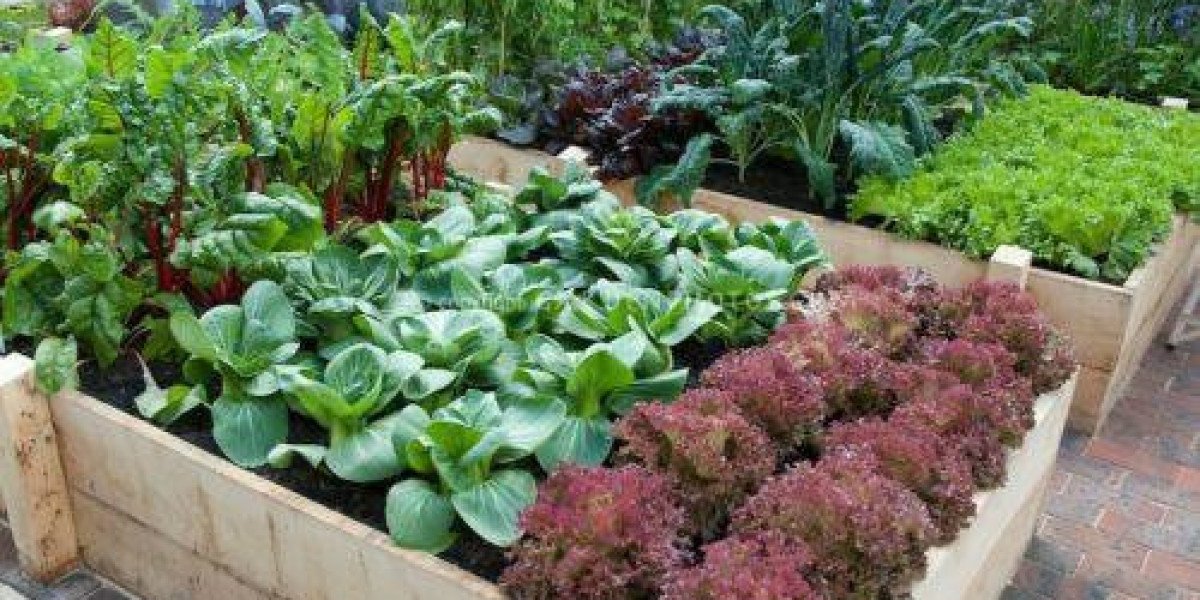Starting an organic vegetable garden is a rewarding way to enjoy fresh, healthy produce right from your backyard. Growing your own vegetables allows you to control the process from start to finish, ensuring that your crops are free from harmful chemicals and pesticides. However, a successful garden begins with the right seeds and techniques. In this guide, we’ll explore everything you need to know about planting and growing a thriving organic vegetable garden, including tips on choosing the best organic vegetable seeds, preparing your soil, and maintaining healthy plants throughout the season.
Choosing the Right Organic Vegetable Garden Seeds
1. Select High-Quality Organic Seeds
When starting an organic garden, choosing high-quality vegetable seeds for sale is the first and most important step. Organic vegetable garden seeds are grown without synthetic pesticides, fertilizers, or genetically modified organisms (GMOs), making them the best option for anyone looking to grow their own organic produce. Be sure to purchase seeds from reputable suppliers who specialize in organic gardening. These seeds are often labeled with certifications such as "Certified Organic" or "Non-GMO," which indicate they meet strict organic farming standards.
2. Consider Your Local Climate
Before selecting seeds, it's important to consider your local climate. Certain vegetables thrive in specific conditions, so choose seeds that are well-suited to the weather patterns in your area. For example, cooler weather crops like lettuce, spinach, and peas do best in spring or fall, while heat-loving crops like tomatoes, peppers, and squash prefer the warm summer months. Understanding your growing zone and average frost dates will help you select the best varieties for your garden.
3. Grow a Variety of Vegetables
One of the joys of gardening is having access to a diverse range of vegetables. When selecting vegetable garden seeds, consider planting a variety of crops that will provide you with different harvests throughout the season. Growing a mix of root vegetables, leafy greens, and fruiting crops ensures that your garden remains productive from early spring through late fall. You can even grow herbs like basil, oregano, and cilantro alongside your vegetables to add flavor to your meals.
Preparing Your Soil for Planting
1. Test Your Soil
Before you plant your non-GMO vegetable seeds, it's essential to test your soil to understand its pH level and nutrient content. Most vegetables grow best in slightly acidic to neutral soil (pH 6-7), so testing your soil will help you determine if any amendments are necessary. You can purchase a soil test kit or send a sample to a local agricultural extension office for analysis. Based on the results, you can add organic matter such as compost, manure, or organic fertilizers to improve soil fertility and structure.
2. Improve Soil Drainage
Healthy soil is key to a thriving vegetable garden. If your soil has poor drainage, it can lead to waterlogged plants and root rot. To improve drainage, mix in organic matter like compost or well-rotted manure, which will help break up heavy clay soil and improve moisture retention. Raised beds are also a good option if you have heavy or compacted soil, as they provide better drainage and allow for easier soil management.
3. Enrich with Organic Matter
Incorporating organic matter into your soil not only improves its structure and drainage but also boosts its nutrient content. Compost is an excellent way to add nutrients to your soil while promoting healthy microbial activity. Additionally, organic mulches like straw, leaves, or grass clippings can help retain moisture, suppress weeds, and keep the soil temperature stable.
Conclusion
Growing an organic vegetable garden from seeds is a rewarding and fulfilling experience that allows you to enjoy fresh, healthy produce straight from your garden. It is better to buy vegetable seeds online for better discounts. By choosing high-quality organic vegetable garden seeds, preparing your soil properly, and maintaining your garden with care, you can create a thriving and sustainable garden. Whether you're a beginner or an experienced gardener, following these tips will help ensure that your organic garden flourishes season after season, providing you with an abundance of nutritious vegetables to enjoy year-round. Happy gardening!







